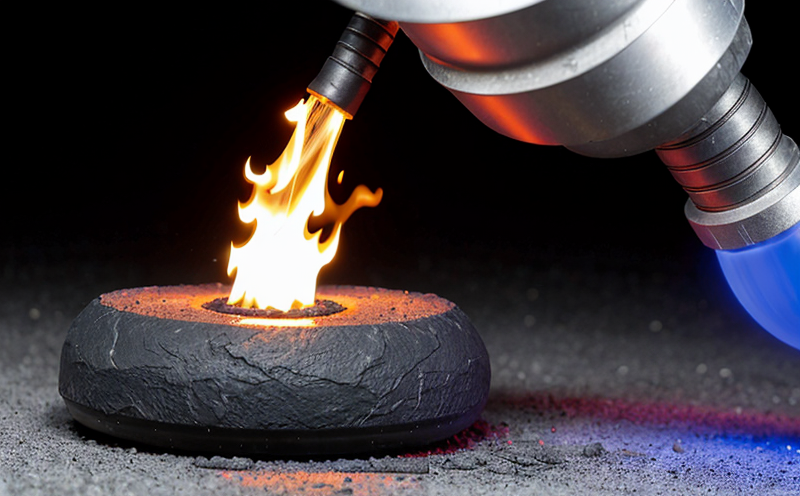Assessing thermal expansion effects in robotic materials
Assessing Thermal Expansion Effects in Robotic Materials Unlock the Secrets to Ensuring Your Robots Performance and Durability
As technology continues to advance at a breakneck pace, robots are becoming increasingly integral to various industries, from manufacturing and logistics to healthcare and education. However, with the increased use of robotics comes a unique set of challenges, particularly when it comes to ensuring their performance and durability. One critical aspect that often gets overlooked is assessing thermal expansion effects in robotic materials.
Thermal expansion refers to the tendency of materials to expand or contract in response to changes in temperature. While this phenomenon may seem minor, it can have significant consequences for robotic systems, leading to malfunctions, reduced lifespan, and even complete system failure. In this article, well delve into the importance of assessing thermal expansion effects in robotic materials and explore how our laboratory services at Eurolab can help you identify potential issues before they become major problems.
What is Assessing Thermal Expansion Effects in Robotic Materials?
Assessing thermal expansion effects in robotic materials involves analyzing the behavior of various components, including metals, plastics, and composites, under different temperature conditions. This process helps to predict how a material will perform in real-world applications, taking into account factors such as
Temperature fluctuations
Thermal cycling (repeated heating and cooling)
Material interactions
By understanding these dynamics, manufacturers can design more robust and reliable robots that can withstand the rigors of operation.
Why is Assessing Thermal Expansion Effects Essential for Businesses?
Incorporating thermal expansion assessments into your product development process offers numerous benefits for businesses
Improved Performance By identifying potential issues before they occur, you can optimize your robots design to ensure seamless operation under various temperature conditions.
Enhanced Durability Understanding material behavior helps extend the lifespan of your robotic systems, reducing maintenance costs and minimizing downtime.
Increased Reliability Assessing thermal expansion effects enables you to predict material interactions, ensuring that your robots operate consistently and reliably in diverse environments.
Compliance with Industry Standards Our laboratory services at Eurolab help ensure compliance with relevant industry standards, reducing the risk of product recalls and reputational damage.
Key Benefits of Assessing Thermal Expansion Effects
Reduced Material Waste By optimizing material selection and design, you can minimize waste and reduce production costs.
Improved Quality Control Identifying potential issues early on enables more effective quality control measures, ensuring that your robots meet stringent standards.
Increased Efficiency Robust robotic systems operate with greater efficiency, reducing energy consumption and minimizing environmental impact.
Enhanced Customer Satisfaction By providing reliable and durable robots, you can build trust with customers, driving repeat business and positive word-of-mouth.
Frequently Asked Questions (FAQs)
What types of materials are typically tested for thermal expansion effects?
Our laboratory at Eurolab specializes in assessing various robotic materials, including metals, plastics, composites, and elastomers.
How do you conduct thermal expansion assessments?
We employ state-of-the-art equipment and techniques to simulate real-world temperature conditions, allowing us to accurately predict material behavior.
What are the most common applications for assessing thermal expansion effects in robotic materials?
Our services are essential for various industries, including manufacturing, healthcare, logistics, education, and research institutions.
Can I request a customized assessment or testing protocol?
Yes! Our team at Eurolab works closely with clients to develop tailored assessment plans that meet their unique requirements.
How long does the thermal expansion assessment process typically take?
Turnaround times vary depending on the scope of work, but we strive to provide prompt and efficient results while maintaining our commitment to accuracy.
Conclusion
Assessing thermal expansion effects in robotic materials is a critical step towards ensuring the performance, durability, and reliability of your robots. By partnering with Eurolabs laboratory services, you can
Optimize material selection and design
Improve quality control measures
Enhance efficiency and reduce waste
Increase customer satisfaction
Dont let thermal expansion issues compromise your robotic systems. Contact us today to discuss how our comprehensive assessment services can help you unlock the full potential of your robots.
Get Started with Eurolab
At Eurolab, were committed to providing exceptional laboratory services that meet the evolving needs of industries worldwide. Trust our team of experts to help you navigate the complexities of assessing thermal expansion effects in robotic materials. Lets work together to create more robust and reliable robots that drive innovation and progress.
Insert Call-to-Action Button Get Started, Contact Us, Request a Quote




